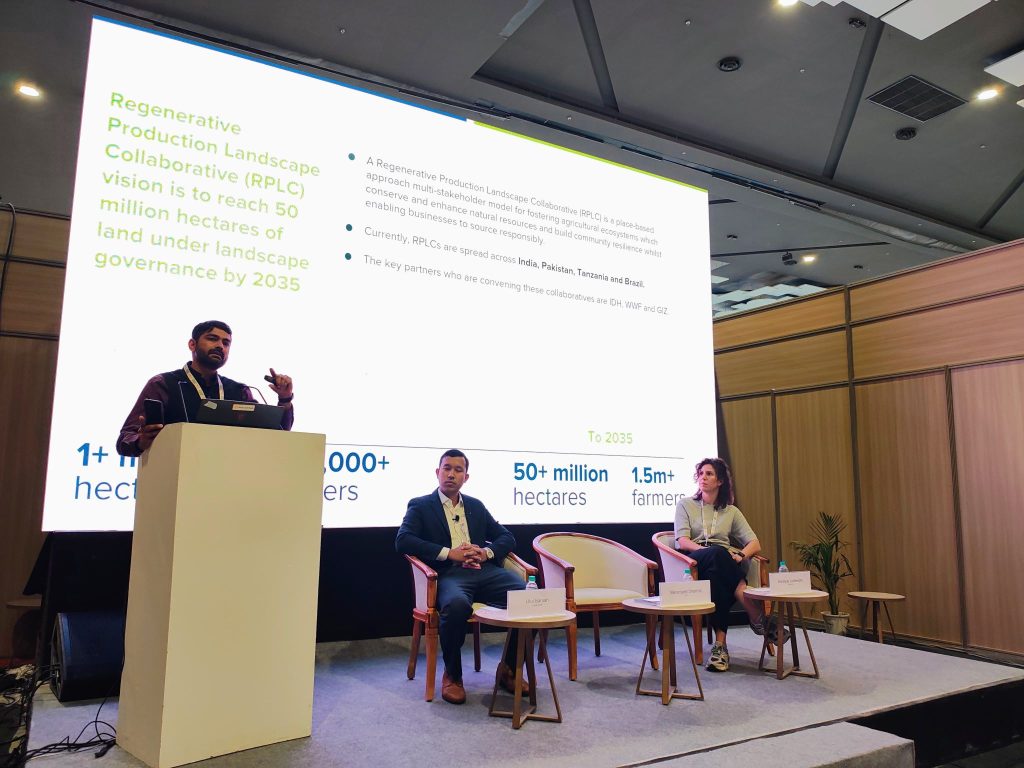This story is related to the landscape initiative “Regenerative Production Landscape Collaborative (RPLC) India”, and originally published on SourceUp.
At RPLC, we believe that transforming agriculture begins with transforming the landscapes it depends on. A landscape is not just a collection of farms — it is a living, interconnected system where environmental, social, and economic factors collectively shape the future.
Guided by this understanding, we continuously explore two key questions:
What does it take to build a climate-resilient, nature-positive region?
And how can businesses source responsibly while creating long-term value for both farmers and ecosystems?
During our recent Masterclass on Regenerative Production Landscape Collaboratives (RPLCs) at #BharatTex2025, we showcased how a place-based, multi-stakeholder approach can drive meaningful change. By strengthening partnerships across value chains, we are helping regions become more climate-resilient while generating tangible benefits for businesses, farmers, and communities.
RPLC’s work focuses on tackling landscape-level degradation and promoting regenerative, nature-friendly production models. These practices support soil health, biodiversity, and water management — enabling farmers to improve productivity while safeguarding their livelihoods. Through strategic collaborations and local engagement, RPLC is creating an enabling framework where responsible sourcing and long-term sustainability go hand in hand.
For the private sector, this approach offers multiple advantages: aligning sourcing strategies with sustainability goals, reducing emissions, meeting compliance standards, and improving supply chain transparency. Working with real, ground-level data allows us to develop scalable models and interventions that mitigate risks and enhance traceability across the sourcing landscape.
A crucial pillar of our work is Monitoring, Reporting, and Verification (MRV). Beyond compliance, MRV for us means measuring real impact — tracking how materials are produced, how emissions are reduced, and how regenerative interventions bring change. Our aim is to develop MRV systems that make the RPLC approach scalable and replicable, so that insights from our work can inform policy, corporate action, and regional development strategies.
The RPLC Masterclass was an important step in uniting diverse stakeholders — from brands and producers to financial and research institutions — around a shared goal: building resilient, regenerative landscapes. But the journey doesn’t end here.
We invite businesses and partners interested in co-developing responsible sourcing models, building transparency, and driving climate resilience at scale to join us in this transformation.
